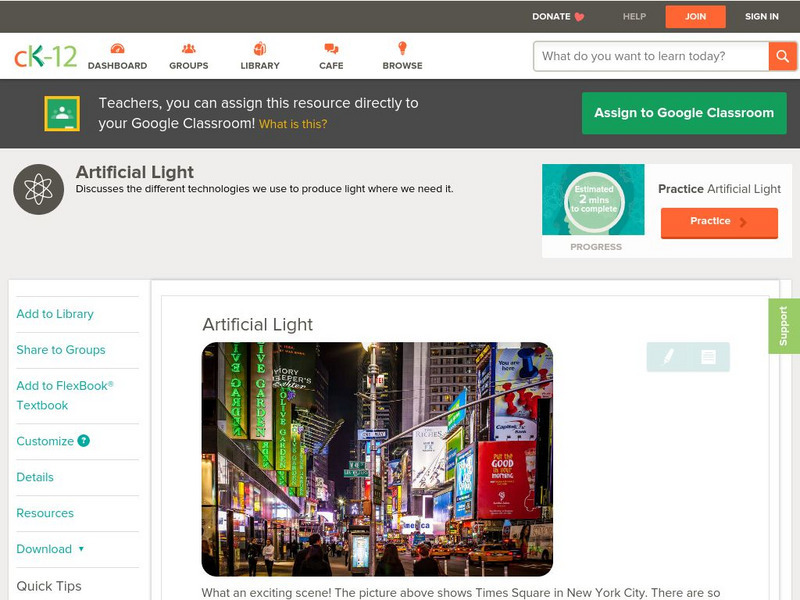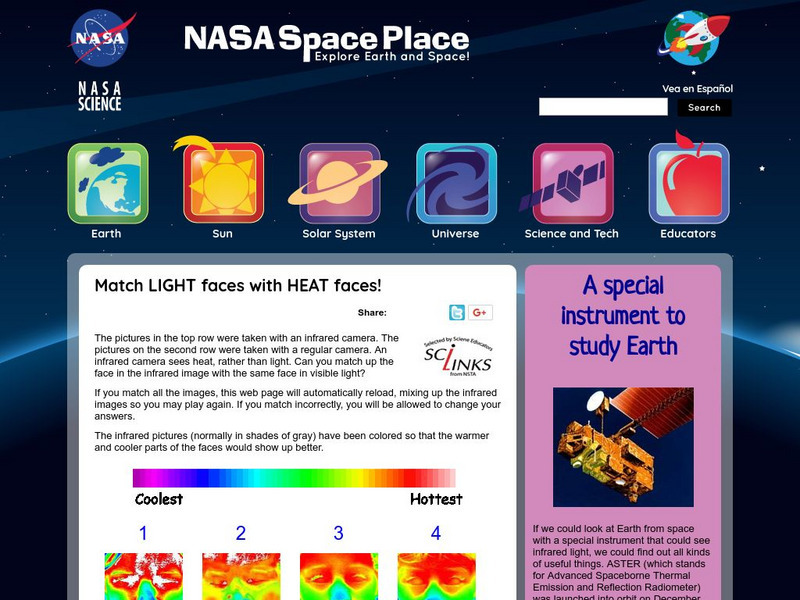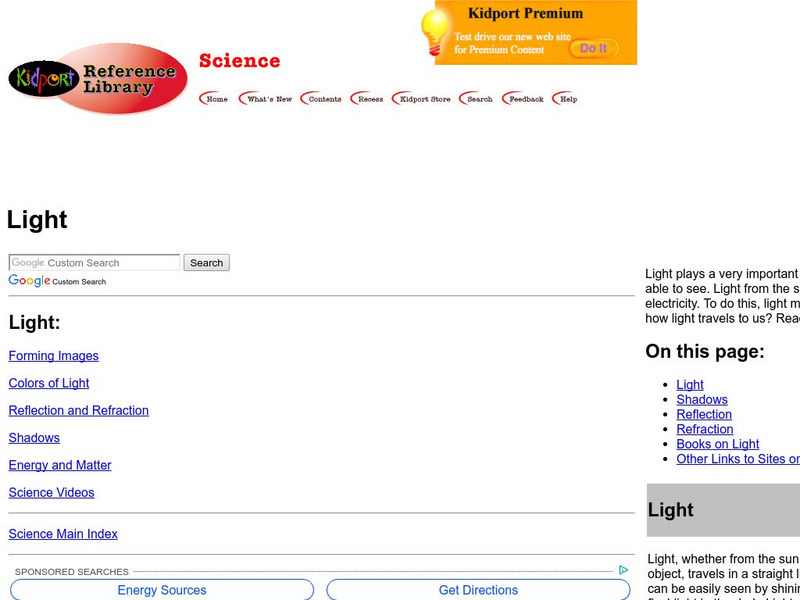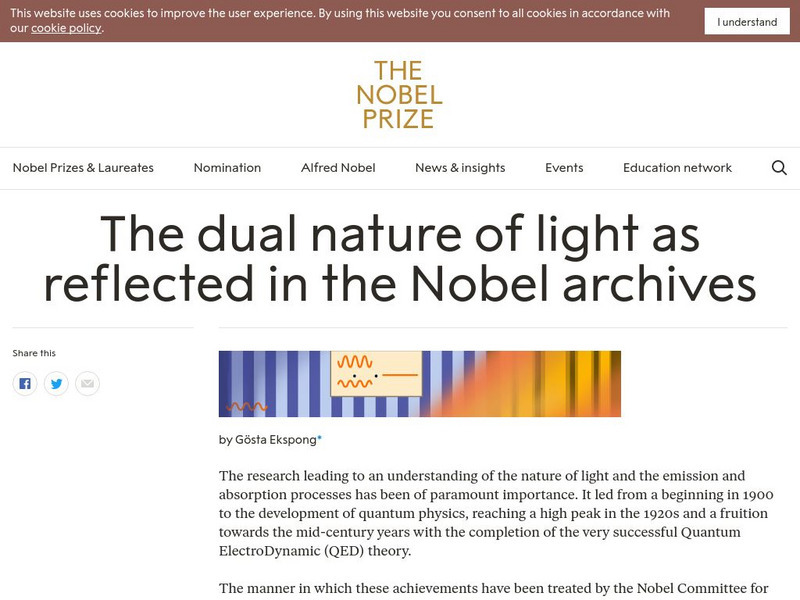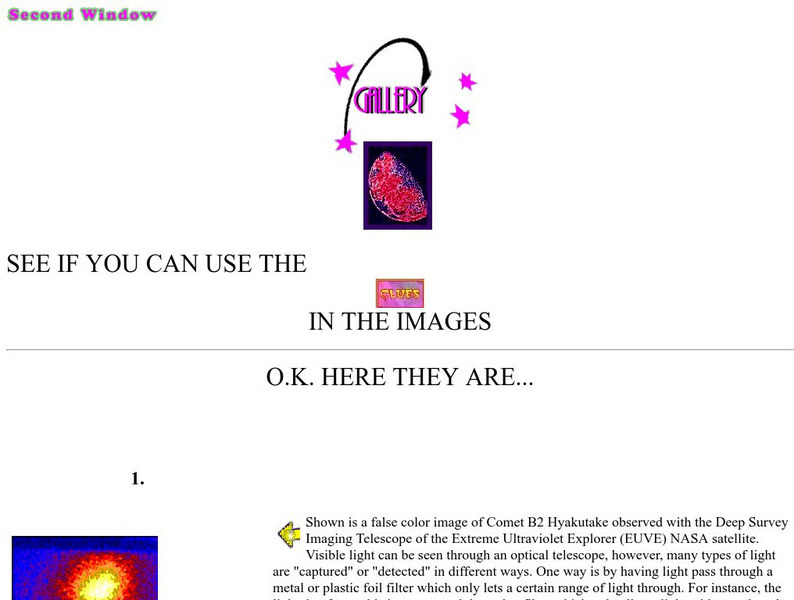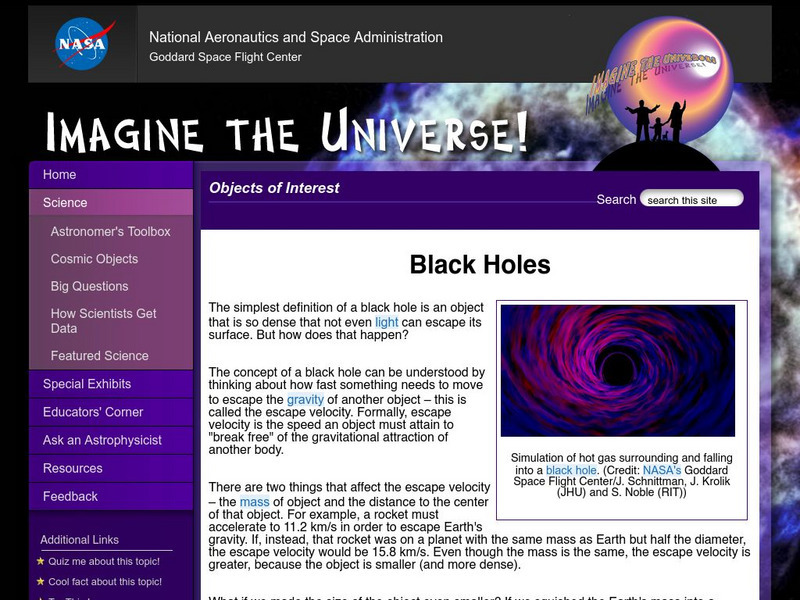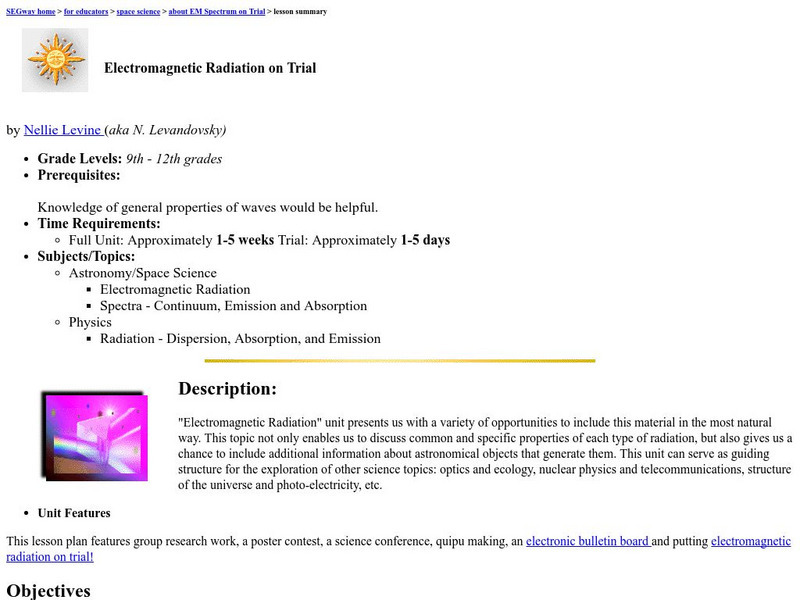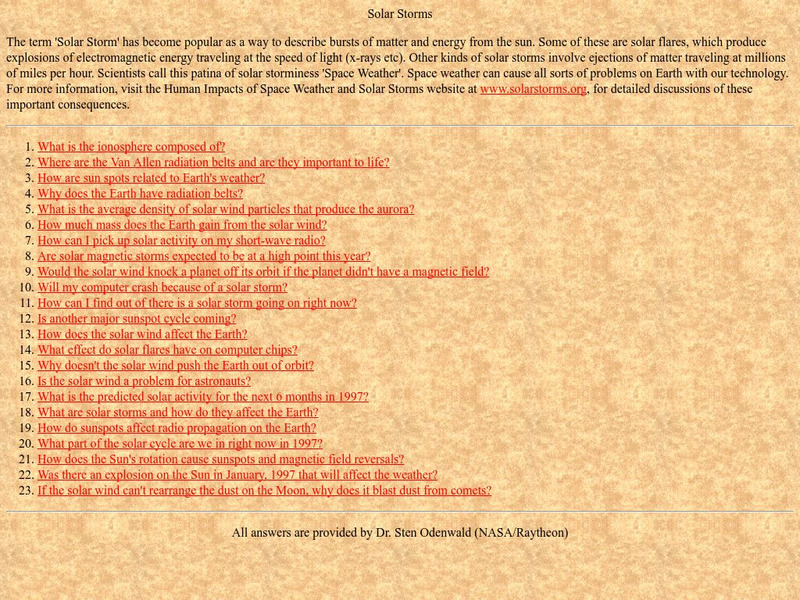Hi, what do you want to do?
Open Curriculum
Open Curriculum: The Ray Model of Light
Students will understand the concept of the ray model of light and how light interacts with matter and reflections.
Lawrence Berkeley National Laboratory
Berkeley Lab: Micro Worlds Project: Advanced Light Source
A discussion of the Advanced Light Source (ALS) facility and its use in material analysis and medicine.
CK-12 Foundation
Ck 12: Physical Science: Artificial Light
[Free Registration/Login may be required to access all resource tools.] What artificial light is and five different types, and how each type produces visible light.
Khan Academy
Khan Academy: Refraction and Light Bending
This article from Khan Academy provides information about refraction and light bending. This information is intended for the Class 12 Physics Course (India).
Center of Science and Industry
Cosi Columbus: Two Lenses in One
Investigate the behavior of a water filled vial, and discover why it acts like a magnifier. Includes full list of materials, procedures, and scientific explanation of what causes light rays to change direction.
NASA
Nasa: The Space Place: Match Light Faces With Heat Faces
This site from the National Aeronautics and Space Administration provides information on the subject. "An infrared camera sees heat, rather than light. Can you match up the face in the infrared image with the same face in visible light?"
Alabama Learning Exchange
Alex: Ultraviolet Radiation
An interactive PowerPoint will be used to introduce the electromagnetic spectrum. Students use UV beads to observe changes caused by the sun's rays and evaluate sunscreen effectiveness. Harmful effects of UV exposure will be described...
NASA
Viewing the Violent Universe: What Are Gamma Rays?
The universe produces a broad range of light, only a fraction of which is visible to our eyes. Gamma rays are nonvisible light, which also includes x-rays, ultraviolet light, infrared radiation, and radio waves.
Science Struck
Science Struck: Color Spectrum Chart With Frequencies and Wavelengths
Read about the visible light spectrum and learn the frequencies and wavelengths for each of the primary and secondary colors.
Kidport
Kidport: Light
Did you know that light is a form of energy and always travels in a straight line? Discover some more interesting facts about light.
Nobel Media AB
The Nobel Prize: The Dual Nature of Light as Reflected in the Nobel Archives
This article discusses the historical figures who contributed to our understanding of the nature of light, x-rays, Quantum ElectroDynamic (QED) theory, and so on.
NASA
Nasa: Mission: Science: Electromagnetic Spectrum: Infrared Waves
Infrared light lies between the visible and microwave portions of the electromagnetic spectrum. Infrared light has a range of wavelengths, just like visible light has wavelengths that range from red light to violet.
Cosmo Learning
Cosmo Learning: Applied Science and Technology 210: Electrical Engineering
A collection of video lectures from a course that explores the application of electrical engineering topics. Webpage includes twenty-eight lectures from a professor at the University of California, Berkeley. Lectures vary in length and...
Science Struck
Science Struck: Wavelength of Visible Light Spectrum
Explains where visible light fits into the electromagnetic spectrum and the wavelengths for the different colors we see.
Other
Escolar.com: La Luz
A brief summary and illustrations of light and how the lights rays are reflected and bent.
Nobel Media AB
The Nobel Prize: Antoine Henri Becquerel Biographical
Read about Becquerel's (1852-1908 CE) contributions to the world of science, which earned him The 1903 Nobel Prize in Physics. This detailed biography includes important dates as well as an overview of his world with radioactivity.
Science Struck
Science Struck: Visible Color Spectrum Wheel
A brief explanation of the visible color wheel.
University of California
Center for Science Education: Gallery
A gallery of astronomy images which depict galaxies, comets, the moon, planets, nebulae, supernovae as seen in various regions of the electromagnetic spectrum. Each image in the gallery is described. Fascinating!
Georgia Department of Education
Ga Virtual Learning: Geometric Optics
This interactive unit will help students to understand the basics of geometric optics. Learn what happens when light strikes the boundary between two media as well as the difference between a real and virtual image? Also explore the law...
NASA
Nasa: Imagine the Universe: Black Holes
Learn what black holes are and the myths that surround them.
California Institute of Technology
Welcome to Cool Cosmos!
Site provides a cosmic classroom, an image gallery, science resources, fun and games, and much more!
PBS
Newton's Apple: Cancer Causes
In this lesson plan site from Newton's Apple, a production of KTCA Twin Cities Public Television in cooperation with the National Science Teachers Association, the causes of cancer are discussed. Several cancer causing agents are also...
University of California
Center Science Edu.: Electromagnetic Radiation on Trial
Here is a 1-5 day unit on electromagnetic radiation that features a teacher guide and student activities with extensions.
NASA
Nasa: Image Science Center: Ask the Space Scientist Earth
Site from NASA contains a collection of 91 questions pertaining to the Earth's atmosphere, magnetic field, ionosphere, rotation and origin of life.







